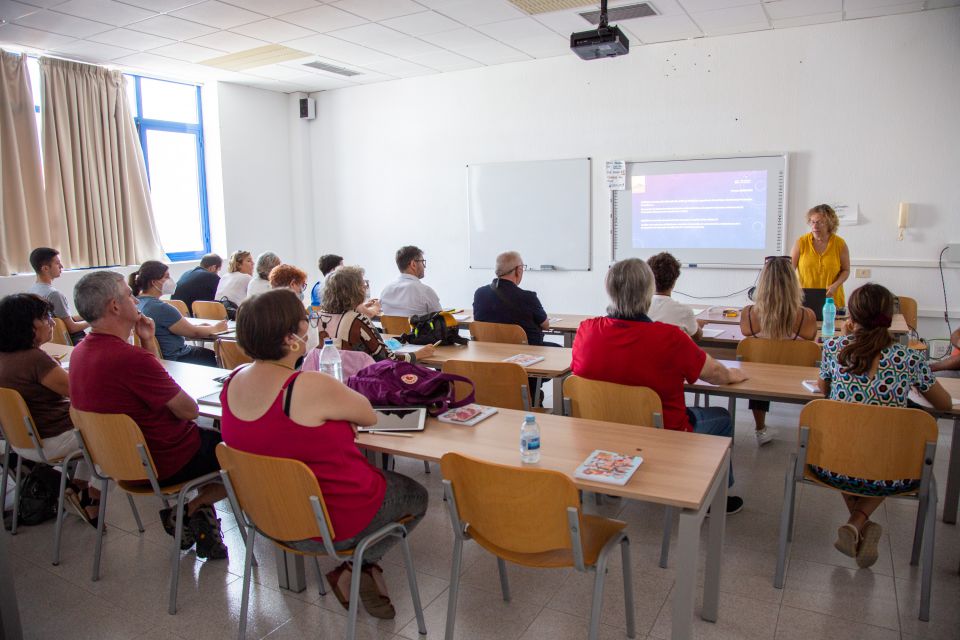The volcanic eruption in La Palma in the last quarter of 2021 was a catastrophe for the island that tested the effectiveness of both the scientific community and the emergency services. The Adeje Summer University dedicated one of this year’s courses to the eruption and its consequences.
The course director was María Candelaria Martín Luis, from the Department of Animal Biology, Edaphology and Geology, University of La Laguna, and speakers included the professor of Petrology and Geochemistry at the University of La Laguna Ramón Casillas Ruiz, who remained in La Palma throughout the eruption as a member of the scientific committee of PEVOLCA; Itahiza Francisco Dominguez Sardeña and Pedro Antonio Torres González, both from the volcanic monitoring group of the National Geographic Institute; Rubén David Fernández González, Insular Director of Security of the Cabildo de Tenerife, president of the Consortium of Fire fighters of Tenerife and also member of PEVOLCA; and Victor Manuel Melo Lopez, a researcher and speaker on volcanology who broadcast extensively during the recent eruptions off El Hierro and on La Palma.
There was discussion of the role of the media, which in general had been exemplary in their coverage, with little sensationalism. Especially noteworthy, said the speakers, was the work of TV Canarias. The workshop also highlighted the effectiveness of social networks such as Twitter to transmit information almost immediately from the centre of the eruption.
"Are there differences between men and women?" - a classic question in our society, and also the title of another of the Adeje Summer University courses running until Friday, July 22. The director is Ángela Torbay, professor of the Department of Evolutionary psychology and Education and current director of the Gender Equality Unit of the University of La Laguna. She said that the objective of the course is not to answer this question for people: "we want each person who comes to answer it. There is no absolute answer because there is no absolute truth; each person, depending on the reality they have lived, the experience they have had, and with the data that we show them, to make their own decisions where they want to walk in terms of equality”.
During the course jurist Claudia Ávila addressed the current situation and the advances that would be necessary in the legislation on gender violence; the philologist Paula Galván provided suggestions on how to effectively use inclusive language.
At the end of 2021, the Spanish government approved a new labour reform law that introduced a series of new employment contracts, modified the characteristics of others and even eliminated some pre-existing ones, for example those used for “work and service”. One of the workshops of the Adeje Summer University this week sought to answer the questions that have arisen as a result of the new legislation.
Directed by university of La Laguna professors Dulce Cairós Barreto, and Gloria Rojas Rivero, the training activity consisted of brief presentations and focused on the specific problems of application of these contracts that have already been detected in these first months since the law came into force. The course director said that in her opinion the new legislation can be considered a success in that it has achieved its goal of making contracts indefinite, but there are still issues regarding those already on work and service and fixed-discontinuous contracts.
